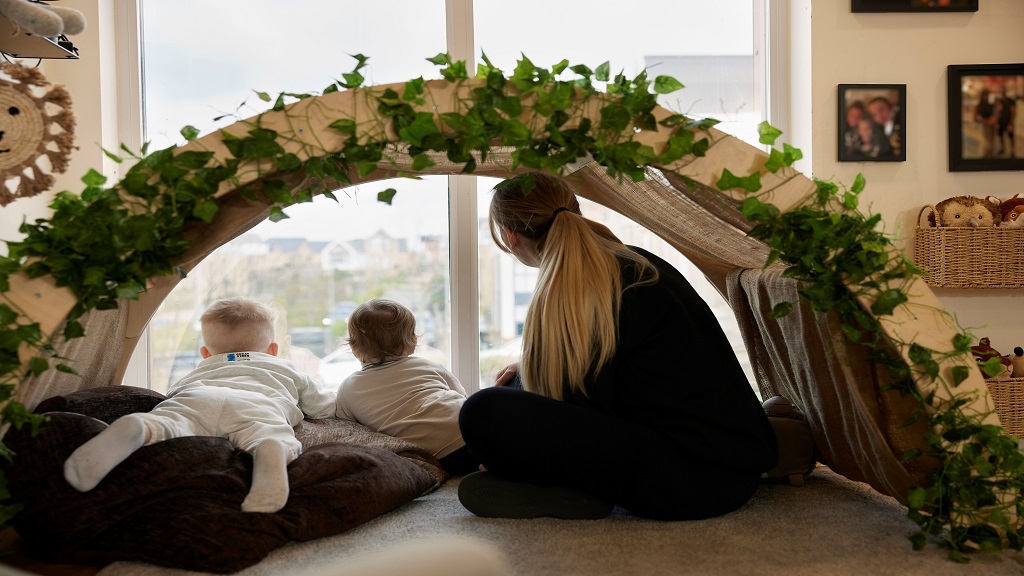Understanding the intricacies of how parents search for and evaluate nurseries can be a gamechanger for an early years setting.…
Selling your nursery: frequently asked questions
Kush Birdi, managing partner of Birdi & Co Solicitors, answers the frequently asked questions of nursery sellers about the legal process
You may be thinking about preparing your nursery for sale in the coming years or maybe you have already agreed principle terms with a potential buyer. Either way, selling your nursery business takes considerable and careful planning. The ‘legals’ are usually the final part of the formal sale process and appointing suitable advisors is essential to getting things right.
You probably have a number of questions about the legal process and here I attempt to answer the ones we get asked most frequently.
Do I need to instruct a specialist solicitor?
It is crucial to work with a solicitor that is well-versed in nursery sales. A specialist – such as us – will be familiar with the legal issues that commonly crop up and how to resolve them in practice. A specialist will anticipate these and factor them into the deal structure from the outset.
Some examples include:
• Ensuring that your interests are protected in relation to OFSTED registrations, and how these operate once the sale takes place
• How to respond to the buyer’s demands as to cash to be left in the bank on completion and how fee income is to be apportioned.
A non-specialist may not have experience in negotiating these points in practice. We are frequently seeing that buyers – especially the large consolidators – expect sellers to instruct specialist corporate solicitors that are specifically familiar with nursery sales.
What are heads of terms?
Heads of terms is an essential document which contains the basic details of the structure and main terms of the sale.
Although heads of terms are not (for the most part) legally binding, it may be difficult or impossible to re-negotiate certain aspects of the heads of terms e.g. the price, without very good reasons. We always recommend that solicitors are appointed to advise on and, if necessary, negotiate the heads of terms. After all, your solicitor has the expertise of structuring and negotiating nursery sales and will be responsible for project managing the sale on your behalf.
Obtaining advice from your solicitor at heads of terms stage will:
• Help to set-up your sale on the right footing before proceeding to the main phase of the legal process and incurring the bulk of the costs
• Secure your interests by ensuring that key terms are adequately addressed in writing from the beginning.
At what stage should I appoint a solicitor?
Generally speaking, we recommend that solicitors are appointed as soon as a deal is agreed in principle and before the heads of terms are negotiated.
Sometimes we are contacted and appointed after the heads of terms have been signed, which can present difficulties if they are unfavourable to our client or if there are material omissions.
As explained earlier, it can be difficult to re-negotiate certain aspects of the heads of terms and this could also result in increased legal costs which should be avoided where possible.
What is the difference between and share sale and an asset sale?
A share sale is where the buyer steps into your shoes as the owner and manager of your limited company and will take on all its assets and liabilities (whether known or unknown). This usually requires a more extensive due diligence process from the buyer’s side.
An asset sale allows the buyer to ‘cherry-pick’ what items it will acquire from your business, which usually includes items like goodwill, office equipment and children’s toys, the nursery premises etc.
The buyer will not generally acquire any of the liabilities of the business, other than in respect of employees who will automatically transfer to the buyer by law.
Whether your sale should be structured as a share sale or an asset sale will depend on different factors, such as your and the buyer’s preferences, timing of the OFSTED registration handover and the tax implications.
Note that if your business is not structured as a limited or other company, then your sale will probably proceed as an asset sale.
You should consult with a specialist accountant early on to obtain advice on the tax and accounting implications of your sale.
How long with the legal process take?
Once you have agreed a headline price for your sale, it will be necessary to negotiate the heads of terms which is usually expected to take a week or two but can be even sooner than that if the parties want to work quickly.
We usually recommend allowing for 2 – 3 months from the agreement of heads of terms to reach completion of your sale.
However, every sale is different and the overall timetable can be less or more depending on various factors including:
• The complexity of the deal structure e.g., a sale with multiple settings and a layered or deferred payment structure may take longer to complete than a single setting with a fixed price payable in full on completion
• The expertise of the parties and their solicitors e.g., if one party has decided to instruct solicitors who are not specialists in nursery transactions then that can affect the overall timetable
• What the arrangements are for the nursery premises e.g., if the premises is leasehold and a long lease is already in place then this may not affect the timetable. However, if a new lease needs to be negotiated then the speed of the landlord and their solicitors can cause delay to the transaction.
When should I inform staff about the sale?
There is no perfect answer but the situation needs to be managed carefully. You may not feel comfortable telling the staff until a few days before or even on the day of completion, in case it does not happen for whatever reason.
On the other hand, informing the staff at an appropriate stage may be essential from the buyer’s perspective to make sure there is a smooth transition and so that the staff have had the chance to process the proposed change of ownership before it happens.
Informing the staff earlier than later also avoids the risk of them finding out by accident and then having the manage that process instead, together with the questions that will inevitably follow.
Sometimes owners are happy to inform the nursery manager or senior management team prior to the sale taking place, with the remainder of staff being informed on the day of completion.
Ultimately, it is up to you when to tell the staff but discussions about this should take place with the buyer at appropriate intervals during the sale process. The key point to note here is to communicate well with the buyer’s side.
It should be noted that, in an asset sale where employees transfer to the buyer automatically by law, there may be a legal duty to consult with the employees in certain circumstances. You should discuss this with your solicitor in case it applies to you and your buyer.
How do I handover the OFSTED registrations post-sale?
It is a criminal offence to operate a childcare business without being registered on OFSTED’s early years register. Therefore, if you de-register with OFSTED as soon as your sale takes place, the buyer will be unable to continue running the business until its application for registration has been processed by OFSTED.
In a share sale, the registered person usually remains the same post-sale because the entity running the setting has not changed. If you are the nominated individual of the setting then, unless you are staying on to work in the business, the buyer will need to apply for a replacement nominated individual.
In an asset sale, the buyer will need to register as the replacement registered manager and nominated individual.
This can cause a timing issue between the day of completion and the replacement registrations being completed, not least because OFSTED’s registration process can take a number of months – normally in an asset sale where an application for a new registered manager is to be made.
It is essential to incorporate this consideration into the sale process in terms of the timetable and the legal documents.
One way to address this is to maintain your OFSTED registrations in place post sale until the buyer’s registration has been processed (giving the buyer a maximum time period to do this). In this scenario, you would continue to be responsible to OFSTED, and be OFSTED’s main contact point, for the setting. We would expect the purchase agreement to incorporate some protections in your favour, and we have our own practice for dealing with this.
Alternatively, but less commonly, it is possible for the parties to legally commit to the sale by signing the legal documents, with both sides being contractually obliged to complete the transaction within a certain number of days of the buyer’s registration being finalised with OFSTED.
It is usually less desirable to opt for this way forward due to a lack of certainty regarding the sale (and the timing of it) and raising additional complexities within the legal documents themselves.
We hope this article has answered some of your questions about the legal process of selling your nursery. In the next edition, we will be answering some more of your burning questions, so keep your eyes peeled.
Please contact me if you would like to discuss your proposed nursery sale:
Birdi & Co Solicitors
(w): www.birdilaw.com
(t): 07745 525 837
(e): [email protected]
Let’s connect on LinkedIn:
@BirdiandCoSolicitors @KushBirdi
Latest Features
Daniel Weir, research analyst at childcare sector insurance firm Morton Michel outlinessome of the pressures facing the industry and why…
Michelle Demirtas, head of pedagogical research and development, emotional wellbeing at Bright Horizons explores the critical role of focusing on…





